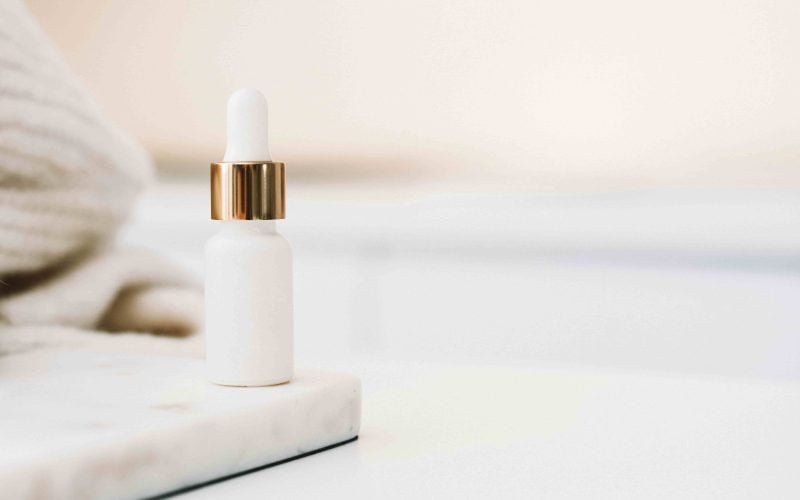Choosing the right skin care products can be challenging, especially with the myriad of options available. Understanding your skin type is crucial for selecting products that will address your specific needs. Therefore, this article will help you decode your skin type and guide you in choosing the best skin care products for different skin types to keep your skin healthy and radiant. Moreover, by understanding the unique characteristics of your skin, you can make informed decisions and select products that truly benefit your complexion.
Understanding Different Skin Types
- Normal Skin:
- Characteristics: Balanced, not too oily or dry, few imperfections, and a radiant complexion.
- Care Tips: Normal skin requires maintenance to keep its balanced state. Use gentle cleansers, light moisturizers, and sunscreen.
- Dry Skin:
- Characteristics: Flaky, rough, tight, and more prone to fine lines.
- Care Tips: Hydration is key for dry skin. Use creamy cleansers, rich moisturizers with hyaluronic acid and ceramides, and hydrating masks.
- Oily Skin:
- Characteristics: Shiny, greasy, larger pores, and prone to acne.
- Care Tips: Balance oil production without over-drying. Use foaming cleansers, oil-free moisturizers, and products with salicylic acid.
- Combination Skin:
- Characteristics: A mix of oily and dry areas, often oily in the T-zone (forehead, nose, and chin) and dry on the cheeks.
- Care Tips: Treat different areas accordingly. Use gentle cleansers, balancing moisturizers, and targeted treatments for oily and dry zones.
- Sensitive Skin:
- Characteristics: Redness, irritation, prone to reactions, and often feels itchy or tight.
- Care Tips: Focus on soothing and calming products. Use fragrance-free cleansers, hypoallergenic moisturizers, and products with calming ingredients like aloe vera and chamomile.
Choosing the Right Skin Care Products
- Cleansers:
- Normal Skin: A gentle, foaming cleanser is ideal for removing impurities without stripping natural oils.
- Dry Skin: Opt for a creamy cleanser that hydrates while cleansing.
- Oily Skin: Use a gel-based or foaming cleanser to remove excess oil.
- Combination Skin: A balanced cleanser that is neither too harsh nor too mild works best.
- Sensitive Skin: Choose a fragrance-free, mild cleanser that won’t irritate your skin.
- Toners:
- Normal Skin: A hydrating toner with antioxidants can help maintain balance.
- Dry Skin: Use a toner with hydrating ingredients like glycerin or hyaluronic acid.
- Oily Skin: A toner with salicylic acid or witch hazel can help control oil.
- Combination Skin: A balancing toner that addresses both dry and oily areas is ideal.
- Sensitive Skin: Opt for a soothing, alcohol-free toner with calming ingredients.
- Moisturizers:
- Normal Skin: A lightweight, non-greasy moisturizer is sufficient.
- Dry Skin: Use a rich, hydrating moisturizer with ingredients like shea butter and ceramides.
- Oily Skin: An oil-free, mattifying moisturizer helps control shine.
- Combination Skin: A gel-based or light lotion works well for both dry and oily areas.
- Sensitive Skin: Choose a fragrance-free, hypoallergenic moisturizer with soothing ingredients.
- Serums and Treatments:
- Normal Skin: Use a hydrating serum with antioxidants for added benefits.
- Dry Skin: A serum with hyaluronic acid can provide deep hydration.
- Oily Skin: Serums with niacinamide or salicylic acid help control oil and prevent breakouts.
- Combination Skin: A balancing serum with niacinamide can address both concerns.
- Sensitive Skin: Use a calming serum with ingredients like aloe vera or chamomile.
- Sunscreens:
- Normal Skin: Use a broad-spectrum SPF 30 or higher sunscreen.
- Dry Skin: Choose a hydrating sunscreen with moisturizing ingredients.
- Oily Skin: An oil-free, mattifying sunscreen works best.
- Combination Skin: A lightweight, non-greasy sunscreen is ideal.
- Sensitive Skin: Opt for a mineral sunscreen with zinc oxide or titanium dioxide.
Tips for Identifying Your Skin Type
- The Bare-Faced Test:
- Wash your face with a gentle cleanser and pat dry.
- Leave your skin bare for an hour without applying any products.
- Observe your skin to determine its characteristics.
- The Blotting Sheet Test:
- After the bare-faced test, use blotting sheets on different areas of your face.
- Check for oil residue to help identify oily or dry areas.
- Consult a Dermatologist:
- For a professional assessment, visit a dermatologist who can analyze your skin type and recommend suitable products.
Common Skin Concerns and Solutions
- Acne:
- Use products with salicylic acid or benzoyl peroxide.
- Keep your skin clean and avoid pore-clogging ingredients.
- Aging:
- Incorporate retinol, peptides, and antioxidants into your routine.
- Hydrate regularly and protect your skin from UV damage.
- Hyperpigmentation:
- Use brightening ingredients like vitamin C, niacinamide, and alpha-arbutin.
- Always wear sunscreen to prevent further darkening of spots.
- Dry Patches:
- Exfoliate gently to remove dead skin cells.
- Use rich moisturizers and hydrating masks to replenish moisture.
- Redness and Irritation:
- Opt for products with calming ingredients like aloe vera, chamomile, and colloidal oatmeal.
- Avoid harsh scrubs and fragrances.
Conclusion
Decoding your skin type is the first step towards achieving healthy, glowing skin. By understanding your skin’s unique needs, you can select the right products and create a routine that addresses your specific concerns. Remember, consistency is key. Regular care and the right skin care products for different skin types will help you maintain a radiant complexion. Therefore, embrace the journey to discovering the best skin care products for your skin type, and enjoy the confidence that comes with knowing you are taking the best possible care of your skin.





